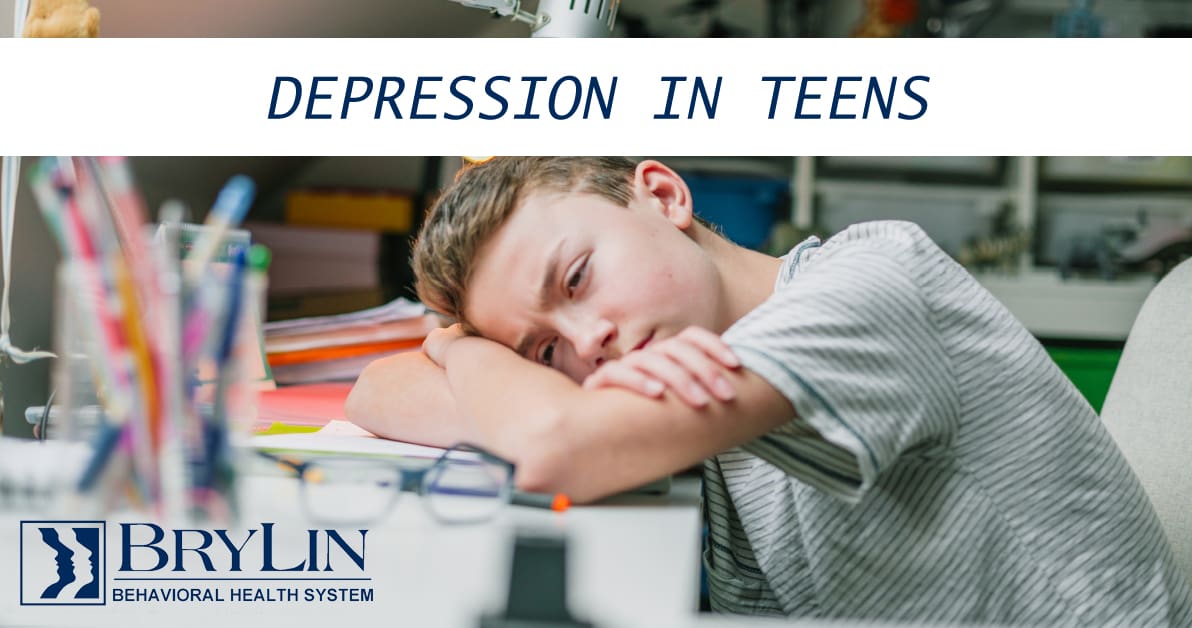
Depression in teens is very treatable…
We usually think of someone who’s depressed as being sad or “down” for a very long time. But children and teenagers who are depressed can also be irritable or angry a lot of the time. They may seem on edge. Some depressed kids are irritable instead of sad. Others are both: they alternate between sad and irritable.
Since teenagers are often irritable, how can you tell if your child’s irritability might be associated with depression? Normal irritability is intermittent, a reaction to something specific. In depression, it’s their mood most of the time. It’s also normal for kids to be cranky at home, but not at school or when they’re with friends. Or cranky in the morning, and then in a better mood later. But if they’re irritable all the time, and not just at home, but in all settings, it could be depression.
To be diagnosed with depression, a child would need to meet other criteria for depression, too. Those include losing interest in things they used to enjoy, lacking energy, changes in eating and sleep habits, among other things. If they are irritable but high in energy, it’s more likely to be connected to anxiety.
If you’ve noticed that your child has been unusually irritable and angry, the first step is to talk to them. Ask them if there’s something bothering them. If they’re upset about something specific, listen to their concerns without being judgmental. If not, and it seems to be a generally irritable mood, it’s a good idea to get care from a mental health professional.
Especially when it’s caught early, depression is very treatable. Treatment for depression includes both medication and specialized forms of cognitive behavioral therapy that focus on helping kids learn to cope with difficult emotions.
GETTING HELP
Getting treatment for children with depression may seem daunting, but it really can help. Treatment for depression almost always involves therapy, and it can include medication as well.
The first step is finding the right clinician. Your child’s clinician should help you understand the treatment and take your questions seriously. It’s common for people with depression to be reluctant to try treatment, so it’s important for your child or teenager to comfortable with the clinician, too.
One of the most effective therapies for depression is cognitive behavioral therapy (CBT). CBT helps kids learn how their thoughts, feelings and behavior are connected. They learn to catch unhelpful thought patterns and build coping skills. For more severe depression, dialectical behavior therapy (DBT) can help kids learn to manage intense emotions. Interpersonal psychotherapy (IPT) and mindfulness-based cognitive therapy (MBCT) have also been shown to help teenagers and young adults with depression.
When therapy alone isn’t enough, kids can also take medication for depression. The most common medications for depression are called SSRIs (like Zoloft and Prozac) and SNRIs (like Strattera and Cymbalta). It’s very important for kids who take medication to work closely with a doctor. The doctor can make sure your child is taking the right amount and look out for any side effects.
Finally, it’s essential for the family to be involved in a child’s depression treatment. Parents can learn how to support their child and help them practice new skills at home. Having a child with depression can be hard on families, and getting support from the therapist often makes a big difference.
TALK TO A MENTAL HEALTH PROFESSIONAL
If a child’s irritability and anger are a pattern that’s going on every day, for more than a couple of weeks, and outside the home as well as with the family, it’s a good idea to consult a mental health professional. For fast access to evidence-based mental health care for a children and adolescents, please contact BryLin Hospital at 716-886-8200 or visit www.brylin.com for more information.


Comments are closed